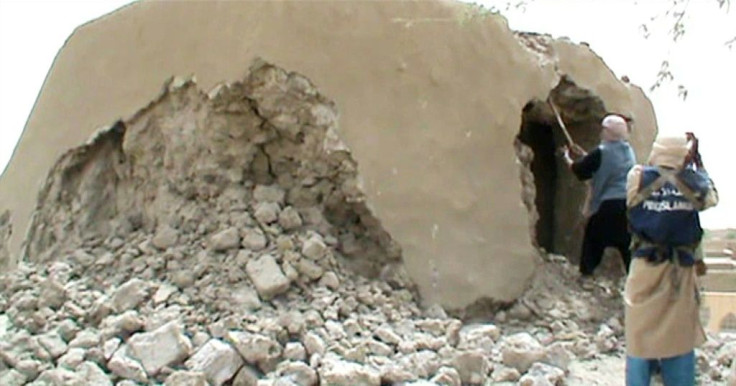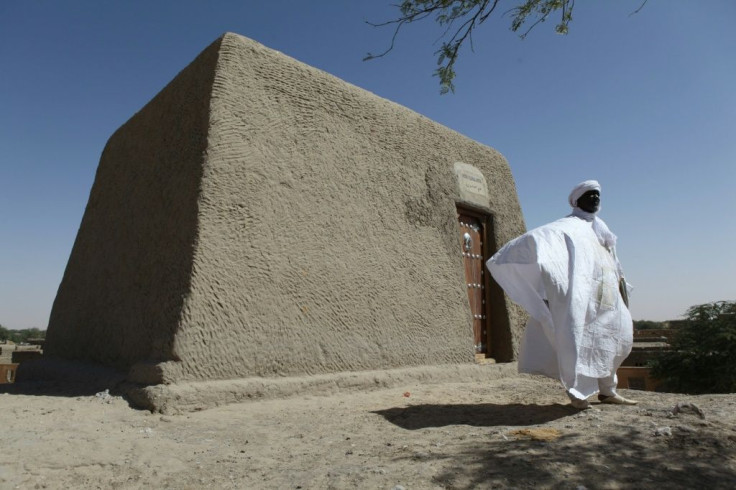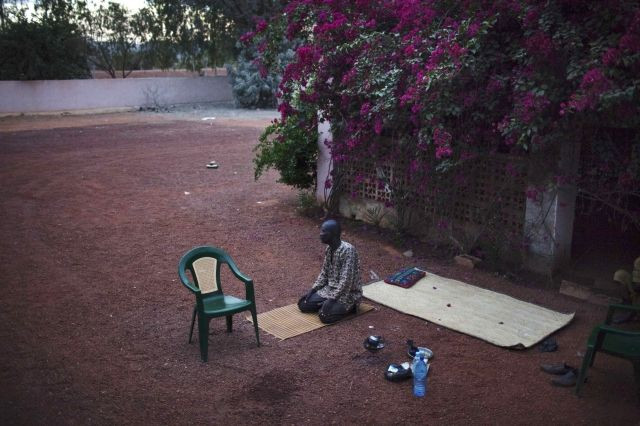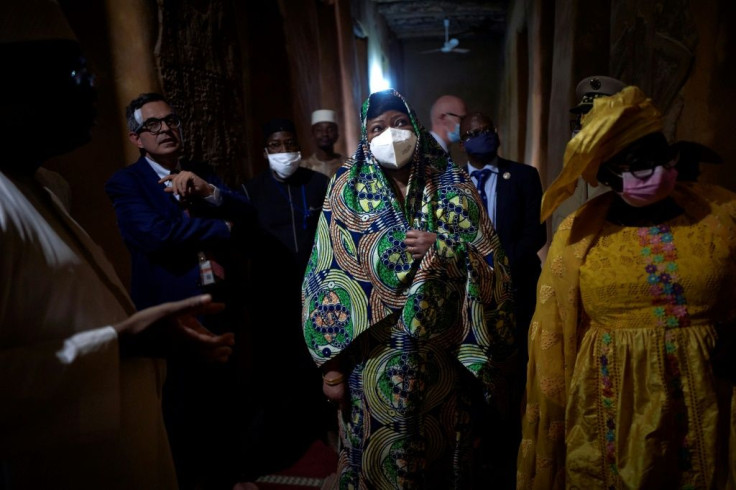In Mali, ICC Prosecutor Savours Ruling To Punish Timbuktu Destruction
Wearing a green head-dress matching her African robes, the chief prosecutor of the International Criminal Court (ICC), Fatou Bensouda, visited Timbuktu on a mission to turn the page on a chapter of cultural desecration.
In the 15th and 16th centuries, the Sahara trading post flourished as a centre of Islamic culture -- in Western cultures, it was often a name shrouded in mysticism and remoteness.
In 2012, Timbuktu hit the headlines for quite different reasons.

The town was occupied by the jihadist group Ansar Eddine, which took pickaxes to 14 of the town's famous mausoleums of Muslim saints.
The Hague-based ICC in 2016 sentenced Malian jihadist Ahmad Al Faqi Al Mahdi to nine years in prison for leading the destruction of the UNESCO-listed shrines, which the extremists deemed idolatrous.
For the first time, attacking a nation's historic and cultural heritage was condemned as a war crime by an international court.

This week, Bensouda was in Timbuktu to savour her victory, as the Malian government and UNESCO received a symbolic euro in payment of damages -- a small but potent sign of the will for redress.
"For me, the circle is closed," Bensouda said on the scene of the crime.
"When I began to investigate with my teams, people asked: 'Why isn't Bensouda investigating crimes of blood? These are just buildings'," she said.
"But it was so important! We needed to send the message that destroying sites classified by UNESCO cannot go unpunished."

The ICC found that Mahdi was liable for 2.7 million euros ($3.17 million) in damages which it said should go to the local community protecting the sites.
As he will never pay this sum, the ICC Trust Fund for Victims -- a body founded separately from the court, with a mission to help survivors of genocide and war crimes -- decided on a symbolic payment.
Mama Dolite Doubia, who heads the trust fund, said it was "an immeasurable symbol of the harm that we all suffered and of our will to say 'never again'."

Between jihadist activity, armed groups and trafficking, the regional situation remains volatile.
Timbuktu itself suffers from old intercommunal tensions pitting sedentary black Africans against Arab nomads.
UNESCO deputy director general Xing Qu addressed the imams of Timbuktu's three great mosques to argue that culture is a binding force in society.
"Your heritage is our heritage," he said. "What belongs to Timbuktu belongs to humanity."
The religious leaders listened, then one turned to Bensouda.
"Al Mahdi has been sentenced, but he was acting under the responsibility of another, Iyad Ag Ghaly," he said.
Then head of Ansar Eddine, Ag Ghaly today heads the main shadowy jihadist group affiliated to Al-Qaeda, the Support Group for Islam and Muslims.
"Our work in Mali is not finished," the ICC prosecutor said.
Another Islamist extremist -- Hassan Ag Abdoul Aziz Ag Mohamed Ag Mahmoud -- who was considered the head of the jihadist police in Timbuktu, went on trial before the ICC in July of last year.
He is accused of having taken part in the destruction of the mausoleums as well as crimes against humanity, torture, rape, sexual slavery and other inhumane acts including forced marriages.
The shrines have been restored using traditional methods and local masons, and the ancient manuscripts that have survived are now looked after at the Ahmed Baba Institute of Higher Learning and Islamic Studies.
But visitors to Timbuktu, numerous before 2012, are rare today.
© Copyright AFP {{Year}}. All rights reserved.





















